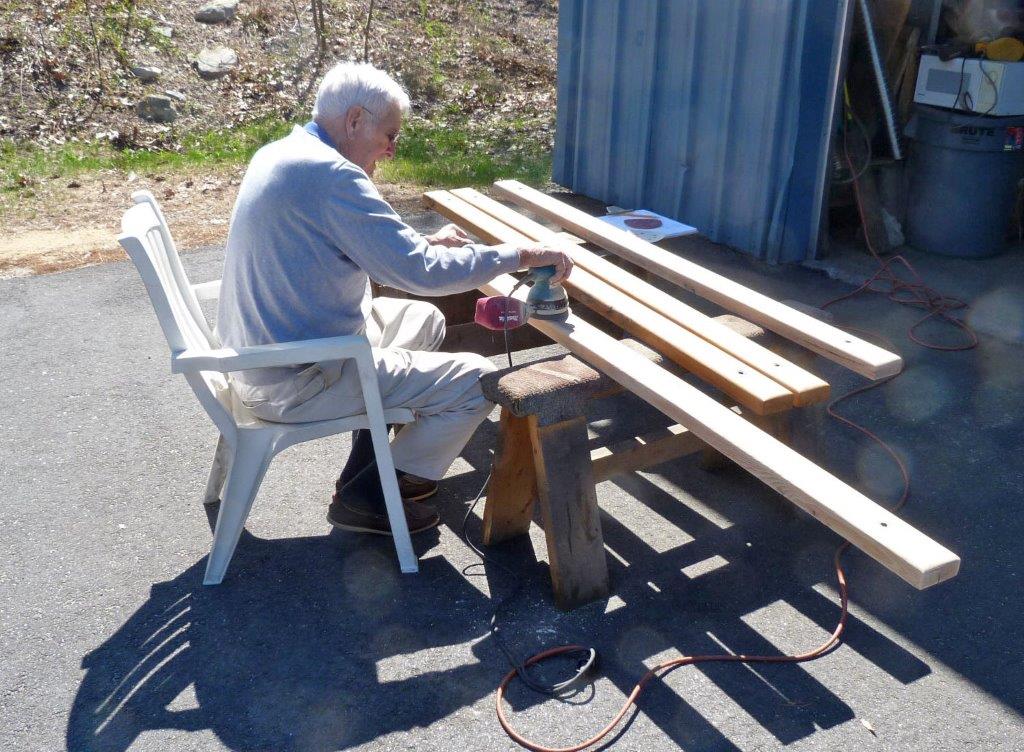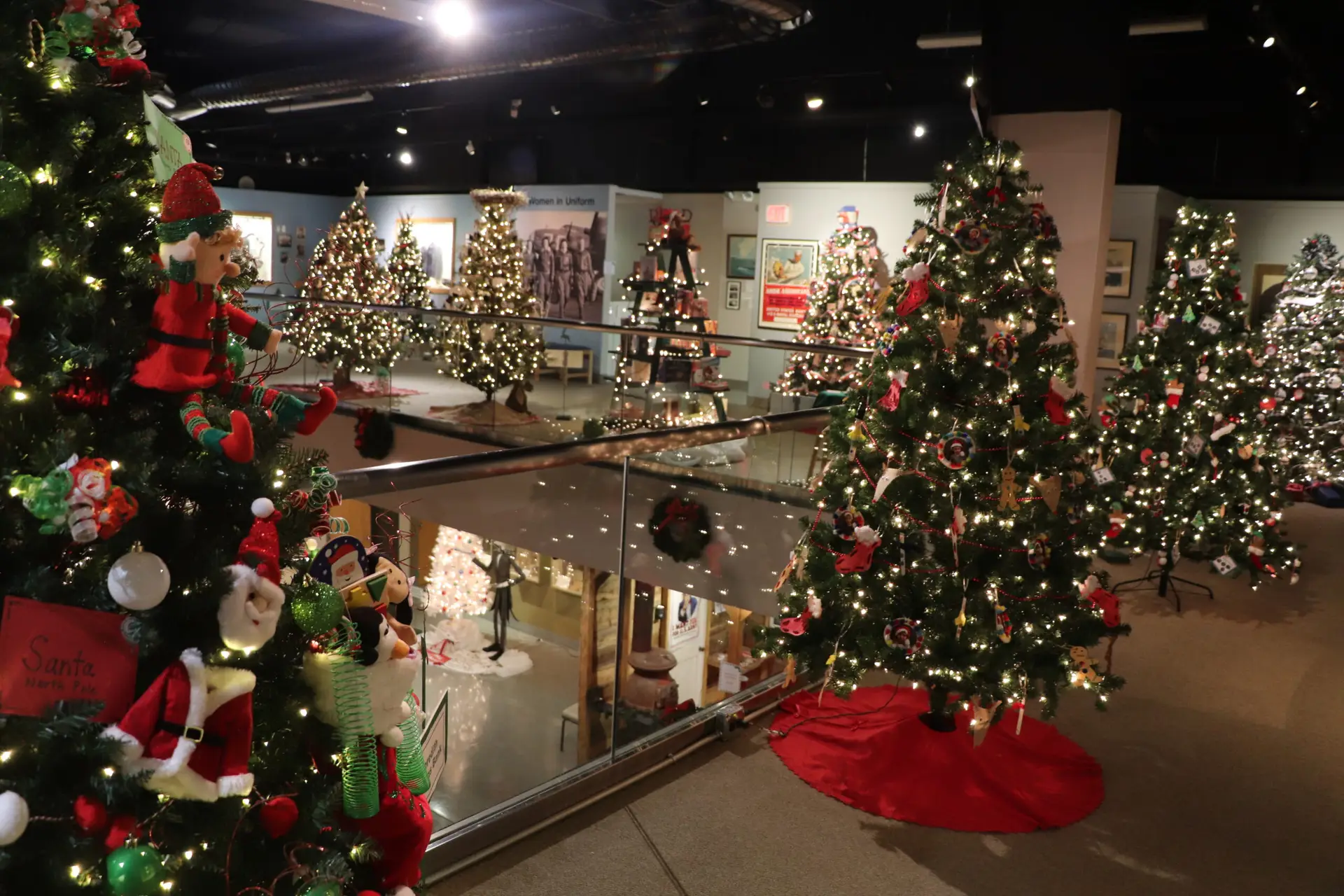Out of the activities many would suggest for a 95-year-old, woodworking and performing other tasks at a museum most likely would not be among them. Those are exactly the kinds of things Warren Pond, a WWII veteran of the Merchant Machines, loves to do at the Wright Museum of World War II in Wolfeboro.
One of more than 60 volunteers, Pond spends about four hours at the museum each week, doing anything from hanging exhibits and assembling furniture and equipment to painting walls and cleaning the grounds as part of a group known as “The Thursday Guys.”
“I used to play golf with someone on the board and thought volunteering would be fun,” said Pond, who began volunteering at the museum in 2000. “They need people to do the things that need to be done.”
With more than 14,000 pieces on display from the battlefields and the homefront from WWII, it takes the work of Pond and others like him to keep the museum and exhibits in top shape for members and visitors to explore and learn.
“Warren and his colleagues are never seen, but what they do is essential to the operation of the museum,” said Michael Culver, executive director of the Wright Museum. “We simply could not function without them. Warren and the other ‘Thursday Guys’ are what make Wright such a special place.”
While Pond spends one day a week working at the museum, he said he does not often frequent it as a visitor. He has taken family members to the museum, however, and holds in high regard the photographs on display of the Merchant Marines, who served in the North Atlantic Ocean, Mediterranean Sea, English Channel and England.
While perception exists that Merchant Marines were not involved in battles on those hostile waters, Pond offers some enlightenment.
“We’re not looking for someone to give us a parade, but it was really dangerous,” he said. “Without the Merchant Marines, the tanks and planes that went to Europe wouldn’t have made it or had supplies. The Merchant Marines were involved in battles as well.”
The sacrifices made by many on the battlefields, seas and at home during WWII illustrate why the Wright Museum exists, as its mission is “to provide a vivid perspective on the profound and enduring impact of the World War II experience in American society.”
The impact WWII had on American society, at least for Pond, is unity.
“This country was better united than any time I can remember,” he said. “People can go to the museum and see the events going on at war and at home, even see how much a loaf of bread cost at the time.”
According to Culver, volunteering at Wright Museum offers people a chance to give back and enhance the experience of those visiting the museum.
“Our volunteers are what I call ‘the face of the museum,'” he said. “We are always seeking new docents, especially those who can work on weekends, and the mechanics are always looking for qualified personnel to help in the garage.”
For more information, or to sign up to be a volunteer, visit www.wrightmuseum.org. Volunteer applications are available online or by contacting Volunteer Coordinator Donna Hamill at 603-569-1212.
The Wright Museum, 77 Center St. In Wolfeboro, is open daily through Oct. 31 with hours of operation being 10 a.m. to 4 p.m. Monday through Saturday and noon to 4 p.m. on Sundays. Admission is free for members, $6 for children ages 5-17, $10 for adults and $8 for military and seniors. Children 4 and younger get in free.





